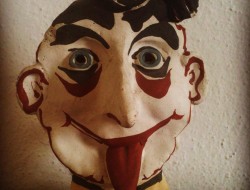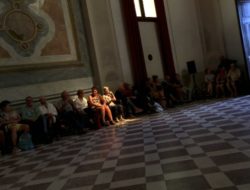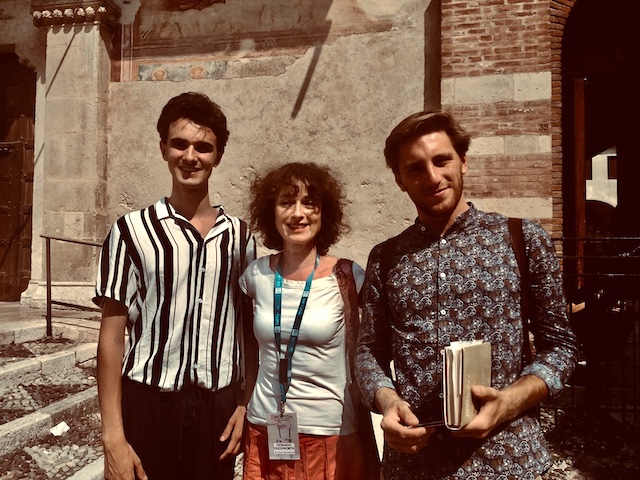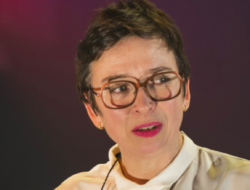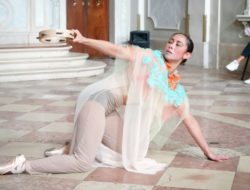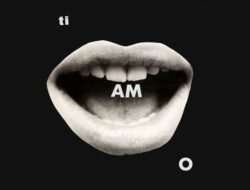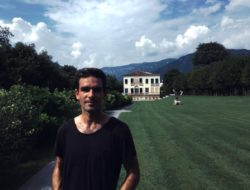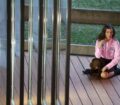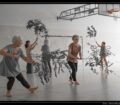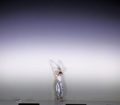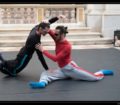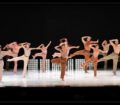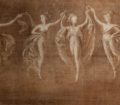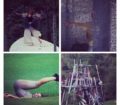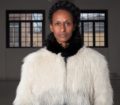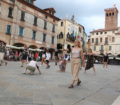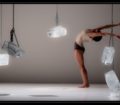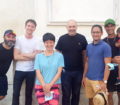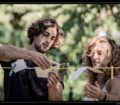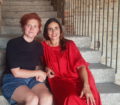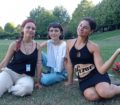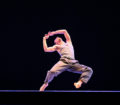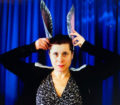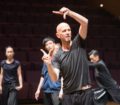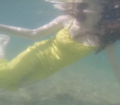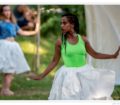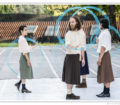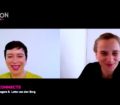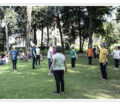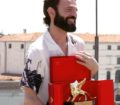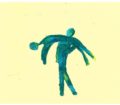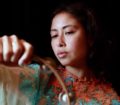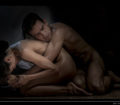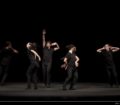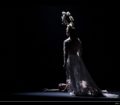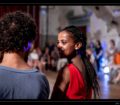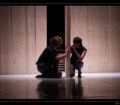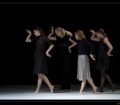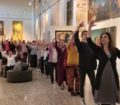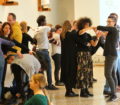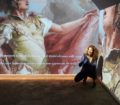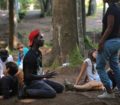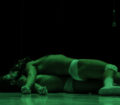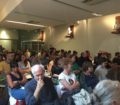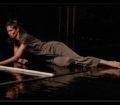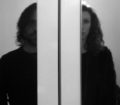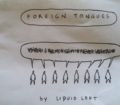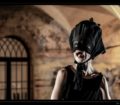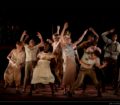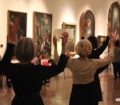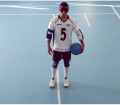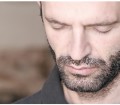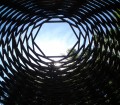La versione in italiano segue quella inglese
ENG | Yes, I am a… is a series of interviews curated by Francesco Guazzo within the section NUOVI SGUARDI. Their ensemble collects a sampling of the most varied types of spectators and tries to understand how professional and human identity can influence or not the gaze in watching performances.
Oonagh Duckworth (MANCHESTER, 1963) works in the dance field as a journalist and a producer and is now a mentor for young writers.
FG: Could you tell me how your professional and human identity may or may not come to influence your gaze as a spectator?
When I am a spectator I always try to eliminate my professional gaze because it doesn’t help me in the slightest and also because I think it puts a field between myself and what the artist is hoping that I will receive from the performance. We can say that I try to put myself in a complete amateur frame of mind, almost with the innocence of a child.. and it’s not always easy to do it because sometimes a work doesn’t touch me in the same way as a human being and therefore, then, I can start analysing it more with the professional gaze. But I think that I’m quite able to go back and eliminate it because of the fact that I’ve been working in this field for so long. What it can be helpful for me, in order to watch a dance performance, is that I have danced, and that therefore I have physical memory of what it might entail. I think that there is a lot of people that enjoy dance performances because they have danced, and they can recall and enjoy the physical sensations and so became interested in looking at dance performances. And that’s something – I think – can happen with everybody… I don’t know if you noticed it but sometimes the hairs on your arms stand up and I think dance can provoke that and it is an advantage then to have moved: everybody should move, everybody should dance, and we don’t need to be trained or professional, it’s something we all can do. In being a spectator the fact of having physically experienced dance can surely help, but being too analytical or too critical while watching a performance is something I’m always trying not to do.
FG: So could you tell me also what you’re doing here with the EXPLORATORIUM and the young writers involved in it?
The group of professional writers who are here are also attempting to engage with an audience to announce their experience of watching performances that possibly might seem to elitist or too complex or too contemporary on an alien item. So we’re seeking experiences that could give them keys to latch on personal references that will help them get more from performances. We’re really experimenting, so we don’t know how what we’re doing will evolve tomorrow but I think that dance performances can evoke and resonate in many many ways with people if they allow themselves to have that liberty, so we’re trying to disinhibits audiences from the expectation that they have to understand, that they have playwright language to describe what they’ve seen, or that they’re feeling is perhaps wrong and they haven’t understood so they’re not clever enough… all that is not appropriate when watching a dance performance, we think, and so we try to make people aware of what their opinion is, and that it’s incredibly valid and that’s probably what the artist want them to feel: what they feel as opposed to what they should feel. So we’re designing projects in order to help people feel ok about that, and it’s also fun because – as you might have experienced – watching something on the stage can also stimulate your own thought about how creative you would like to be possibly, and therefore we train also created to playground where for a small moment people can actually feel artistic themselves, that their creativity becomes something that we can have them experience in a many kind of way without making them professional, bad news: never make any money! So that’s the aim and we put the audience central to these projects and the artist and ourselves really secondly… occasionally we ask the artist to come and explain things, or he listen to what we have to say about that work but we try to reverse the hierarchy so that the audience is center and the artist possibly can be on the periphery and listening to us.
FG: Starting from your own context and coming up to here: a sentence on power.
Trying not to lapse into clichés about it I’d like to make a distinction between power and having a position of power. I think that power can be very helpful to people: if we feel not powerful or devoid of power we can feel really bad. On a personal level power can be very positive, but differently a position of power is very delicate and has to be and goes with a lot of responsibilities and a lot of self-awareness and it’s not everybody that is capable or wants to or simplier is good in a position of power. But power as a thing in itself is a good thing and what we’re trying to do with our project here in Bassano with
the public is to empower them. I think we have to be very careful about making generalities, or statements about what power is… we need people who are willing to take the responsibility of having positions of power.
FG: A desire for BMotion 2020.
We want to come back again please! Because this is the first experience and it’s a super open festival. Other festivals in other parts of the world are perhaps more dictatorial: you have to do this and this… here it is a very privileged situation in which we have been encouraged to experiment and to fail. And also the engagement of the audience already is fantastic! The presence of a willing and open audience is what is the most impressive: with the ground of the grass for the performance we saw in the church and the connection with philosophy, thought, words and all these movement practices… this is really nice and I think you’re very lucky to live here!
Francesco Guazzo
ITA | Yes, I am a… è una serie di interviste curate da Francesco Guazzo all’interno della rubrica NUOVI SGUARDI. Il loro insieme colleziona una campionatura delle più svariate tipologie di spettatore e tenta di capire come l’identità professionale ed umana possa arrivare ad influenzare o meno lo sguardo sugli spettacoli.
Oonagh Duckworth (Manchester, 1963) lavora nel campo della danza come giornalista e produttrice ed è ora una mentore per giovani scrittori.
FG: Saprebbe dirmi come la sua identità professionale e umana possa o meno arrivare ad influenzare il suo sguardo di spettatore?
Da spettatrice, cerco sempre di eliminare il mio sguardo professionale perché esso non mi aiuta minimamente e anche perché penso che metta un campo tra me e ciò che l’artista spera che io possa ricevere dallo spettacolo. Possiamo dire che provo a mettermi in una completa mentalità amatoriale, quasi con l’innocenza di un bambino… e non è sempre facile farlo perché a volte un’opera non mi tocca allo stesso modo come essere umano e quindi, posso iniziare poi ad analizzare il lavoro di più con uno sguardo di tipo professionale. Ma è per il fatto che ho lavorato in questo campo per così tanto tempo che penso di essere abbastanza in grado di tornare indietro ed eliminare tale sguardo.
Ciò che può essere utile per me, al fine di assistere ad una performance di danza, sta nel fatto che io abbia danzato e che quindi io abbia memoria fisica di ciò che i movimenti potrebbero comportare. Penso che ci siano molte persone a cui piacciono gli spettacoli di danza perché loro hanno danzato, perchè possono ricordare e apprezzare le sensazioni fisiche e quindi si interessano a guardare spettacoli di danza. E questo è qualcosa – penso – che può succedere a tutti … Non so se te ne sei accorto ma a volte i peli sulle tue braccia si alzano e penso che sia la danza a poterlo provocare ed è un vantaggio quindi fare movimento: tutti dovrebbe muoversi, tutti dovrebbero danzare e non abbiamo bisogno di essere formati o professionisti, è qualcosa che tutti possiamo davvero fare. In quanto spettatore, il fatto di aver sperimentato fisicamente la danza può sicuramente aiutare, ma essere troppo analitici o troppo critici mentre si guarda una performance è qualcosa che cerco sempre di non fare.
FG: Potrebbe dirmi allora anche cosa sta facendo qui con EXPLORATORIUM e i giovani scrittori che esso coinvolge?
Il gruppo di scrittori professionisti che sono qui sta anche tentando di interagire con un pubblico di spettatori per annunciare loro una propria esperienza di guardare spettacoli che potrebbe sembrare elitaria o troppo complessa o troppo contemporanea o un oggetto alieno. Quindi stiamo cercando esperienze che possano fornire loro le chiavi per agganciarsi a riferimenti personali che li aiuteranno a ottenere di più dalle esibizioni. Stiamo davvero sperimentando, quindi non sappiamo come ciò che stiamo facendo evolverà domani, ma penso che le esibizioni di danza possano evocare e risuonare in molti modi con le persone, se esse si permettono di avere questa libertà, stiamo quindi cercando di disinibire il pubblico dall’aspettativa che esso debba capire, che debba avere un linguaggio da drammaturgo per descrivere ciò che vede, o dal pensare che ciò che sente è sbagliato o che non si ha capito, e che quindi non si è abbastanza intelligenti … tutto questo non è appropriato quando guardiamo una performance di danza, e quindi proviamo a rendere le persone consapevoli di cosa sia la loro opinione, e del fatto che essa è incredibilmente valida e che probabilmente è ciò che l’artista vuole che provino: ciò che sentono e non ciò che dovrebbero sentire. Quindi stiamo lavorando su progetti che aiutino le persone a sentirsi bene su questo, ed è anche divertente perché – come potresti aver provato – guardare qualcosa sul palco può anche stimolare il tuo pensiero su quanto creativo vorresti essere, e quindi noi ci alleniamo anche in un parco giochi dove le persone per un attimo possono effettivamente sentirsi artistiche, dove possono sentire che la loro creatività diventa qualcosa che possiamo far loro sperimentare in molti modi, e senza renderli professionali, cattive notizie: non si fanno soldi! Quindi insomma questo è l’obiettivo… mettiamo il pubblico al centro di questi progetti e l’artista e noi stessi in secondo piano… a volte chiediamo all’artista di venire a spiegare le cose, o ad ascoltare quello che abbiamo da dire su quell’opera ma proviamo a invertire la gerarchia in modo che il pubblico sia al centro e che l’artista possa restare
in periferia ed ascoltarci.
FG: Partendo dal suo proprio contesto ed arrivando fino a qui: una frase sul potere.
Cercando di non cadere in cliché a riguardo vorrei fare una distinzione tra il potere e l’avere una posizione di potere. Penso che il potere possa essere molto utile per le persone: se non ci sentiamo potenti o se sentiamo la mancanza del potere possiamo sentirci davvero male. A livello personale il potere può essere molto positivo, ma una posizione di potere è invece molto delicata e porta con sè molte responsabilità e la necessità di avere molta consapevolezza di sé e non è per tutti. Ma il potere in sé è una cosa positiva e ciò che stiamo cercando di fare con il nostro progetto qui a Bassano con il pubblico è una sorta di potenziamento. Penso che dobbiamo stare molto attenti a generalizzare su cosa sia il potere … abbiamo però sicuramente bisogno di persone che siano disposte ad assumersi la responsabilità di avere posizioni di potere.
FG: Un desiderio per Bmotion 2020.
Vogliamo tornare di nuovo per favore! Perché questa è la prima esperienza ed è un festival estremamente aperto. Altri festival in altre parti del mondo sono forse più dittatoriali: devi fare questo e questo … questa di Bassano è una situazione molto privilegiata in cui siamo stati incoraggiati a sperimentare e a fallire. E anche il coinvolgimento del pubblico è fantastico! La presenza di un pubblico disponibile e aperto è la cosa più impressionante: con il terreno dell’erba per lo spettacolo che abbiamo visto nella chiesa e la connessione con la filosofia, con il pensiero, con le parole e tutte le pratiche di movimento … davvero tutto è molto bello e io penso che tu sia molto fortunato a vivere qui!
Francesco Guazzo

